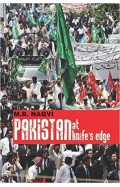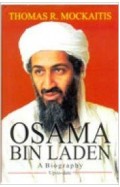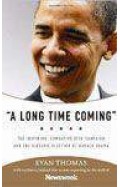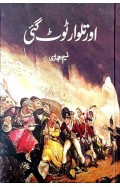- Home
- History
- Middle Eastern
- Losing Arab Hearts and Minds: The Coalition, Al Jazeera and Muslim Public Opinion
Losing Arab Hearts and Minds: The Coalition, Al Jazeera and Muslim Public Opinion
By: Steve Tatham
-
Rs 540.00
- Rs 600.00
- 10%
You save Rs 60.00.
Due to constant currency fluctuation, prices are subject to change with or without notice.
We're offering a high discount on this book as it is slightly damaged
From November 2002 to May 2003, Steve Tatham worked alongside American military planners in the Gulf, coordinating the huge media campaign that foreshadowed and accompanied the eventual invasion of Iraq. From first hand experience he witnessed how, in advance of the outbreak of hostilities, the US planned to win over skeptical Arab hearts and minds. Yet as the campaign unfolded, Tatham, the Royal Navy's public spokesman in Iraq, saw how differently the British and Americans regarded the media and how badly journalists from the Arab world, in particular from Al-Jazeera satellite television, were treated in comparison to those from coalition nations. His book is highly critical of how the United States handled its information war. Notwithstanding the best efforts of well meaning senior US officials, the mounting death toll, both military and civilian, saw the Americans all but ignore the Arab media, focusing instead on a largely acquiescent domestic press, one still obsessed with Al Qaeda's 9/11 attacks on the homeland and only too happy to fly the Stars and Stripes. Images of dead and captured coalition servicemen led to Arab channels being accused of bias against western forces, and such was the demonisation of some channels that many observers began to wonder if President Bush's declaration that 'you are either with us or against us' applied not just to nation states but also to the world's media.
We're offering a high discount on this book as it is slightly damaged
From November 2002 to May 2003, Steve Tatham worked alongside American military planners in the Gulf, coordinating the huge media campaign that foreshadowed and accompanied the eventual invasion of Iraq. From first hand experience he witnessed how, in advance of the outbreak of hostilities, the US planned to win over skeptical Arab hearts and minds. Yet as the campaign unfolded, Tatham, the Royal Navy's public spokesman in Iraq, saw how differently the British and Americans regarded the media and how badly journalists from the Arab world, in particular from Al-Jazeera satellite television, were treated in comparison to those from coalition nations. His book is highly critical of how the United States handled its information war. Notwithstanding the best efforts of well meaning senior US officials, the mounting death toll, both military and civilian, saw the Americans all but ignore the Arab media, focusing instead on a largely acquiescent domestic press, one still obsessed with Al Qaeda's 9/11 attacks on the homeland and only too happy to fly the Stars and Stripes. Images of dead and captured coalition servicemen led to Arab channels being accused of bias against western forces, and such was the demonisation of some channels that many observers began to wonder if President Bush's declaration that 'you are either with us or against us' applied not just to nation states but also to the world's media.
Losing Arab Hearts and Minds: The Coalition, Al Jazeera and Muslim Public Opinion
By: Steve Tatham
Rs 540.00 Rs 600.00 Ex Tax :Rs 540.00
Zubin Mehta: A Musical Journey (An Authorized Biography)
By: VOID - Bakhtiar K. Dadabhoy
Rs 892.50 Rs 1,050.00 Ex Tax :Rs 892.50
Myths Illusions and Peace: Finding a New Direction for America in the Middle East
By: Dennis Ross
Rs 766.50 Rs 1,095.00 Ex Tax :Rs 766.50
Operation Dark Heart: Spycraft And Special Ops On The Frontlines Of Afghanistan And The Path To Victory
By: Anthony Shaffer
Rs 1,697.50 Rs 3,395.00 Ex Tax :Rs 1,697.50
Anna Hazare: The Face Of Indias Fight Against Corruption
By: Pradeep Thakur
Rs 255.00 Rs 300.00 Ex Tax :Rs 255.00
How To Win A Cosmic War God Globalization And The End Of War
By: Reza Aslan
Rs 625.50 Rs 695.00 Ex Tax :Rs 625.50
A Long Time Comming: The Inspiring Combative 2008 Campaign And
By: Evan Thomas
Rs 597.50 Rs 1,195.00 Ex Tax :Rs 597.50
No similar books from this author available at the moment.
The Dead of Winter - Ten Classic Tales for Chilling Nights
By: Cecily Gayford
Rs 2,545.75 Rs 2,995.00 Ex Tax :Rs 2,545.75
Unfinished Tales of Númenor and Middle-earth
By: J. R. R. Tolkien
Rs 1,975.50 Rs 2,195.00 Ex Tax :Rs 1,975.50
The Great Modern Poets - An Anthology of the Best Poets and Poetry Since 1900
By: Michael Schmidt
Rs 2,335.50 Rs 2,595.00 Ex Tax :Rs 2,335.50
Beyond Twilight Explore The World Of vampire
By: Manuela Dunn-Mascetti
Rs 293.25 Rs 345.00 Ex Tax :Rs 293.25
Amphibious Soul - Finding the Wild in a Tame World
By: Craig Foster
Rs 4,405.50 Rs 4,895.00 Ex Tax :Rs 4,405.50
Tell Me Good Things - On Love Death and Marriage
By: James Runcie
Rs 2,290.75 Rs 2,695.00 Ex Tax :Rs 2,290.75
Uke'n Play Ukulele Kit (triangle box, revised art)
By: Hinkler Books
Rs 3,825.00 Rs 4,500.00 Ex Tax :Rs 3,825.00
UAE Business Essentials: Practical Legal Protections for Individuals, Entrepreneurs and SMEs
By: Kamal K. Jabbar
Rs 425.00 Rs 500.00 Ex Tax :Rs 425.00
The Flavour Thesaurus - Pairings, Recipes and Ideas for the Creative Cook
By: Niki Segnit
Rs 4,225.50 Rs 4,695.00 Ex Tax :Rs 4,225.50
The Girl in the Eagle's Talons: The New Girl with the Dragon Tattoo Thriller
By: Karin Smirnoff
Rs 3,650.75 Rs 4,295.00 Ex Tax :Rs 3,650.75
Zubin Mehta: A Musical Journey (An Authorized Biography)
By: VOID - Bakhtiar K. Dadabhoy
Rs 892.50 Rs 1,050.00 Ex Tax :Rs 892.50
Losing Arab Hearts and Minds: The Coalition, Al Jazeera and Muslim Public Opinion
By: Steve Tatham
Rs 540.00 Rs 600.00 Ex Tax :Rs 540.00














-120x187.jpg?q6)












































